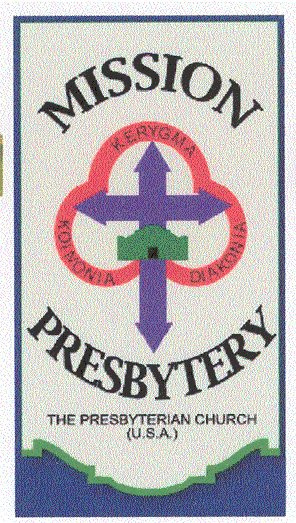
Clerks of Session
Clerk's Committee
Mission Presbytery
This section begins with questions that have been asked recently during session minutes review meetings. If you have a question, you may send it to the Clerk's Committee using the link provided on the Contact Us section of the Home Page.
Choose a Section
1. Q. How are minutes reviewed during a review meeting?
A. Each clerk is asked to sign in so that the Clerk's Committee has a record of what churches have presented their minutes. The clerks are divided into pairs and those two clerks exchange minutes. Each reader is provided with a set of guidelines. They then read each other's minutes. If each clerk has filled out the review form in advance, the review process goes quickly. It is not necessary that the reader go through the entire set of minutes but can do spot checking. Once the reading is complete, the reader completes a certificate which is returned with the minutes to the originating church. The meeting is a come and go affair so it not necessary to be there exactly at the starting time. In addition to fulfilling a requirement of The Book of Order, these reading times provide opportunities for the clerks to learn from each other how to do their jobs better.
2. Q. What is the term of office on a Church Nominating Committee?
A. One year. A person can be reelected but can serve no more than three consecutive years. Church Nominating Committee must have as a majority members of the congregation who are not currently serving on the Session or the Board of Deacons.
3. Q. What goes into the minutes?
A. A lot. For a usable list, see Section II of the Handbook for Clerk's of Session available on the Presbytery web site.
The file Minutes Review Summary form, available on the Announcements page, lists the essential ingredients that should be in Session minutes. The Clerk's Committee is looking into writing this up in a more usable form.
Official information is available on the IRS web site. See www.irs.gov/pub/irs-pdf/p1828.pdf especially pages 20 and 21.
1. Q. What kind of statement needs to be on the financial statements given to donors for income tax purposes?
A. The IRS rules require a statement such as: "(church name) provided no direct or indirect goods and services other than intangible religious benefits in consideration of the gifts recorded here." If contributions are made that are partially tax deductible as described in Question 2, the church should provide a separate statement of that. Also, donations of tangible items (such as a used car or new hymnals or items for the annual garage/rummage sale) should be recorded but the church is not to assign a value.
2. Q. What kinds of gifts are not tax deductible?
A. (1) Tangible goods or services. For example, you give $14 for the book you use in your Sunday School class and you are able to keep the book. Or you donate $10 to the youth group to wash your car. Also, any donation given for a specific person is not tax deductible. For example, you donate $100 to a gift for the pastor for Christmas or because the pastor is leaving. If you buy a ticket to a church dinner for $50, the church must provide an estimate of the value of the meal (say $15) and then only $35 can be claimed as a deduction; that is, the value of the goods/services must be deducted from the total gift.
3. Q. Who should receive a financial statement at the end of the year?
A. Anyone who donates at least $250 during the year.
If the person puts cash into the offering plate, then the church can keep no record of this. If the person puts cash into an envelope with his/her name, then the church must keep a record. This requirement pertains to anyone who donates; it is not limited to members or to those who use pledge envelopes. The IRS will not accept cancelled checks as evidence of donations; the church must provide the statement if the deduction is to be allowed.